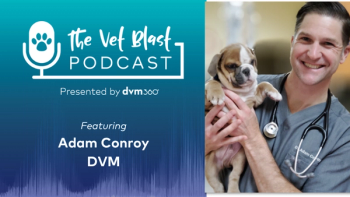
Is it ... legal, ethical, moral?
You probably got ethics training in school, but that's very different from the experience you get in practice, when you're actually facing the tough questions. You want to do what's right for the horse. You need to know the law, so you don't put your practice at risk. You sure don't want to pay fines or put your license on the line. How can you keep it all on the straight and narrow? Consider this article your refresher. Let's get ethical.
YOU PROBABLY GOT ETHICS TRAINING IN SCHOOL, BUT that's very different from the experience you get in practice, when you're actually facing the tough questions. You want to do what's right for the horse. You need to know the law, so you don't put your practice at risk. You sure don't want to pay fines or put your license on the line. How can you keep it all on the straight and narrow? Consider this article your refresher. Let's get ethical.
Ethical, legal, moral
The American Heritage Dictionary defines ethics as "the accepted principles of right and wrong that govern the conduct of a profession." Ethics is a value system based on an individual's job and responsibilities.
Law, according to Dr. Jim Wilson in his book Law and Ethics of the Veterinary Profession (Priority Press, 2002), is a "body of principles that governs conduct and the observance of which can be enforced by courts, or that which must be obeyed and followed by citizens subject to legal sanctions or consequences." Laws are doctrines with sanctions or penalties that can be imposed when they're violated.
Morals are ideas and actions based on right and wrong. Family, friends, your conscience, and sometimes religion influence your morals.
Four sides to every situation
As you can see from these definitions, ethics, law, and morals are intertwined. It could be moral to do something for someone, but it could also be illegal or unethical according to law and veterinary regulations. Something else can be legal, but may violate your sense of morality.
The personal touch
In addition to these factors, there is also a seldom-considered fourth variable that comes into play during the decision-making process: personality type. Our personality influences how we behave, exerting a powerful effect on what we do and how we do it. There are almost as many theories of personality type as there are personality theorists, but for the purposes of this article, let's consider four communication and behavior patterns:
1. Assertive. This is the healthiest and most productive way to communicate. When you're assertive, you let others know your needs, feelings, and concerns without playing games or using manipulation to achieve your goals. You set up boundaries or limits and stay within those parameters.
2. Passive. This type of behavior involves taking the path of least resistance. When you're passive, you have difficulty saying "no" because it might hurt someone's feelings. Passive individuals think they need to please everyone all of the time and are afraid of confrontation or making decisions. Passive behavior can lead to low self-esteem, which leads to self-doubt.
3. Aggressive. Aggression is all about manipulation, power, and control. Aggressive people have a win-lose mindset and limited regard for others' feelings. They want their needs fulfilled at almost any cost. They often have less stringent moral and ethical boundaries and sometimes stretch the gray areas of law.
4. Passive-aggressive. We've all been passive-aggressive at one time or another, or know someone who has. Passive-aggressive people avoid conflict, but at the same time make plans to get what they want in some other way. They'll let things slide that bother them and go behind opponents' backs to create alliances or get payback.
Now let's see how ethics, laws, morals, and personalities might affect a serious decision in equine practice.
Case in point
Here's a situation that might tug at your heartstrings. You diagnose a condition in a patient that requires long-term medication. It will be expensive to treat with the FDA-approved product, and you worry that the owner won't have the money to maintain treatment. Then you remember hearing about how someone compounded a less-expensive version of the product, and it worked. Your sympathies are with the patient. It's the moral thing to do to help a sick animal, right?
You start looking for the product and then you discover the kicker: It's illegal! You could be sued and fined for the use of the product. More important, you could lose your license. Even though you feel sorry for the patient and the client, the law supersedes your feelings of guilt. If you lose your license, you won't be able to do any good for any patients ever again.
If what you're thinking of doing is legal, you next need to consider the ethical and moral implications. Ethical standards come from the AVMA, AAEP, or some other veterinary medical source. These guidelines can aid in your decision, but remember they're just a guide. They won't cover every question you'll have.
The element that gives more meaning to those ethical guidelines is your personal values or morality. These internal rules help you make sense out of the ethical guidelines. Why are the ethics the way they are? Morals will tell you. Your gut will tell you.
At the same time as you wrestle with the legal, ethical, and moral implications of your action, your personality influences your decision. An assertive person will be honest, respect all parties involved, and hopefully make a win-win decision. The passive person will try to please everyone but himself or herself and perhaps get into ethical or moral trouble for the sake of a client or patient. The aggressive person will want to win at all costs. The passive-aggressive types will find some way to get theirs in the end. You have to remember that personality can influence your ethical decisions and adjust accordingly. You want to do the right thing. So in the heat of the moment, step back and think about all these elements.
Coming to a conclusion
By looking at the sticky situation from legal, ethical, moral, and personality-based perspectives, you can see the need for an approach that brings it all together. Try this:
1. Determine whether the issue has legal implications. Is there a law stating that you can or cannot do it? If so, abide by that law or be prepared for the consequences. Don't focus just on laws and ordinances, but also on any signed contracts between parties.
2. Look at veterinary medical or business ethics. Are there guidelines to help you make the decision?
3. Consider your feelings about it. Does it feel like the best thing to do for the patient's health and the client's well-being? Does your experience suggest that this is the best path?
4. Finally, think about your own personality and the best way to talk about your decision with the client and any other parties involved.
Making the right choice in a tough situation is seldom black-and-white. There are shades of gray, of course. If you've been practicing long, you've experienced this reality. Be proud that your years of hard work and dedication mean that others come to you with their tough problems—and that most of the time, you can help solve them.
Veterinary Economics Editorial Advisory Board Member Dr. James E. Guenther, MBA, CVPM, is a consultant with Brakke Consulting in Asheville, N.C. Send questions or comments to
Newsletter
From exam room tips to practice management insights, get trusted veterinary news delivered straight to your inbox—subscribe to dvm360.





